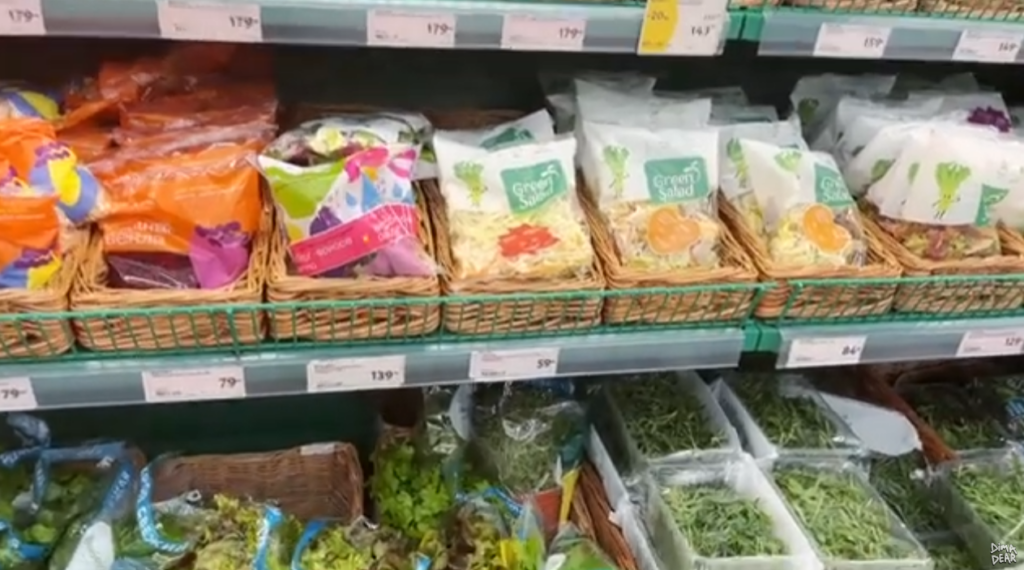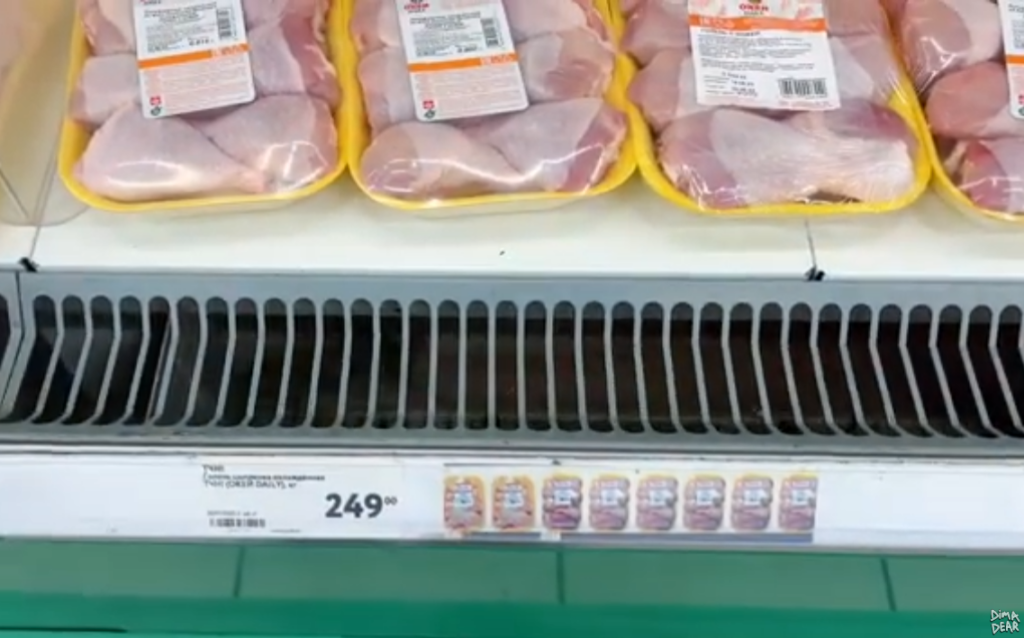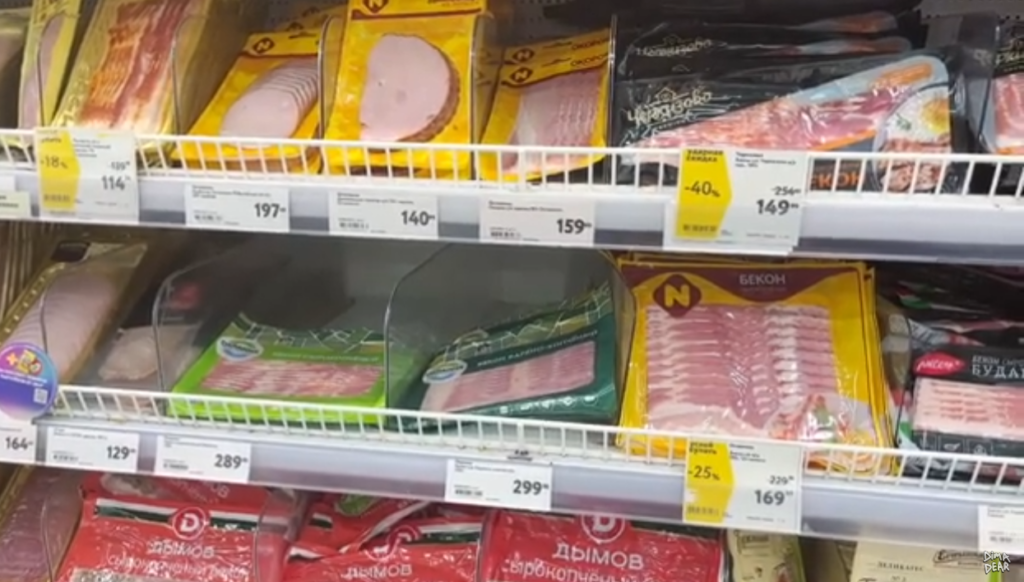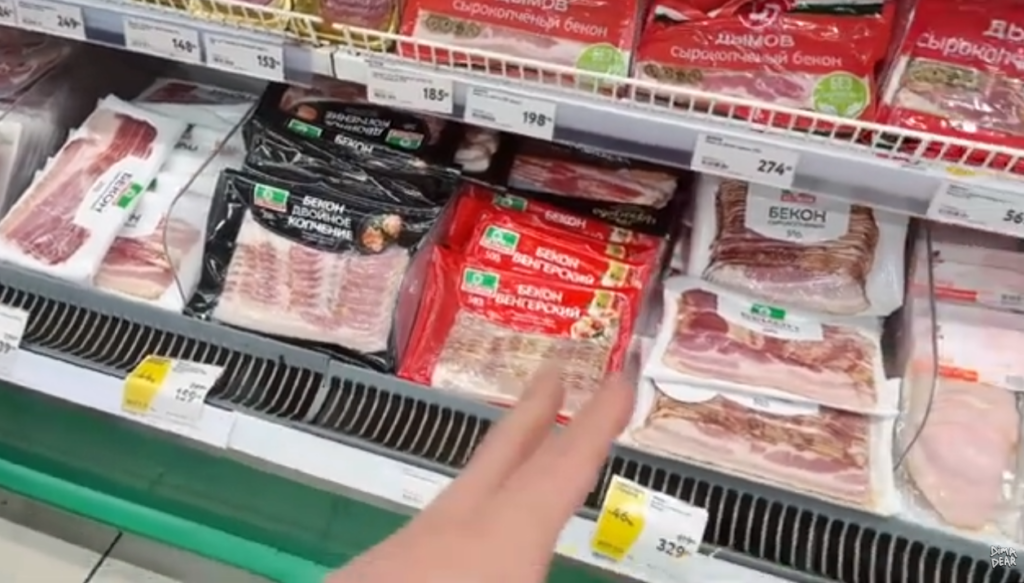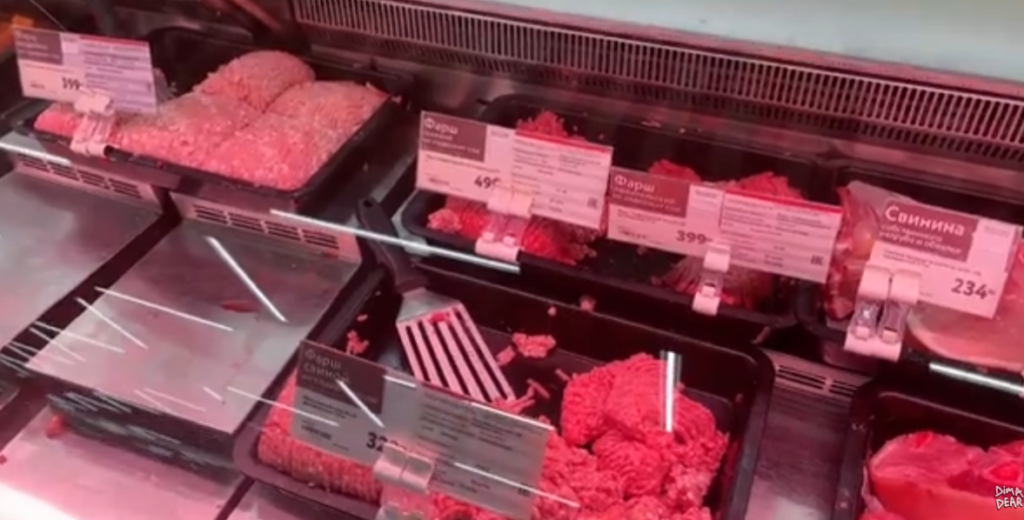I wouldn’t normally write a post like this, but WE ARE NOT going to find this level of ground reporting anywhere in U.S. media. As you might be aware, I have been doing extensive research on the Russian economy specifically with the outcome of western sanctions.
In his video a Youtuber I follow visited a local supermarket, similar to a WalMart Super Center to share information for his USA followers.
Dima Dear, a remarkably nice young man, lives in St Petersburg, Russia (formerly Leningrad), and he shares various experiences with his audience at their request. There is a lot of U.S interest as people following his story are starting to realize life in Russia is not what western media portray.
If you are familiar with USA grocery prices, what Dima shares in this ground report is stunning from a U.S. perspective. If you watch this livestream, keep in mind that 100 rubles equals $1.00. 350 rubles is $3.50. Additionally for weighted products 1kg equals 2.2 lbs. So generally speaking, if something is 100 rubles/kg it is $1 for two pounds.
Example from the video:
•Lean ground beef at 329 rubles/kg is less than $1.65/lb.
•Bacon at 250 rubles/kg is less than $1.25/lb.
•20 eggs are 139 rubles or $1.39.
•Boneless skinless chicken breast $4 for 4lbs.
•Typical Bagged salad mixes .79¢ each. etc.
The wild part is that in Russia they are getting worried these prices are too high.
The average rent for a nicely furnished 2-bedroom modern apartment in St Pete Russia is around $500/month. Something akin to downtown Manhattan. Including rent, utilities, food, transportation, personal items and purchases, a Russian citizen can live very comfortably, remarkably comfortably, on an income of around $1,200 to $1,500/month. In downtown St Pete which is considered a more expensive place to live.
Put that into a USA middle-class perspective and evaluate the impact of western sanctions against the average Russian cost of living.
100 rubles = $1.00
.
.
.
.



